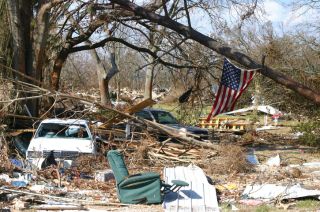This post was originally published on this site
https://cdn2.psychologytoday.com/assets/styles/manual_crop_1_91_1_1528x800/public/field_blog_entry_images/2024-10/iStock-172728401.jpg?itok=rGEG00Z4
A prevailing American attitude toward government assistance can be summed up by a famous quote from Ronald Reagan: “The nine most terrifying words in the English language are: I’m from the government, and I’m here to help.” Of course, not all Americans share this outlook, but many do.
We now find ourselves in a situation where millions of people have been adversely affected by the recent catastrophic storms. As I write this, the death toll from Hurricane Milton is being tallied and millions of people are without power. Untold numbers are still lacking fundamental necessities such as food and water from the effects of Hurricane Helene. Clearly, help is needed. Basic human compassion and fraternal loyalty to fellow Americans demand that we deliver aid as swiftly and efficiently as possible. So what’s preventing that from happening?
In the 21st century, the barriers to efficient relief are not logistical. The supplies exist, and the means to deliver them exist. The barriers are instead social and political, which reveals that at its core, this problem is the consequence of some malfunction within our own psyches. We are psychologically unable to function well enough to secure basic needs. If the country were an individual, this would be the very definition of a psychological disorder.
To a significant degree, Reagan’s quote above transcends politics and taps into something fundamental about how we Americans see ourselves: We are strong. We are independent. We don’t need anyone. Those values can be constructive and healthy—to a point.
The truth is that human beings have always been interconnected and mutually dependent. We grow increasingly more so as technology continues to weave the world together. To our ancestors, being expelled from the tribe would have meant certain death, and we have evolved as necessarily social creatures because of that. In fact, we hold that one indication of Neanderthals’ humanity was that they cared for their sick and injured tribe members. That we often fail to do that for each other therefore calls into question the degree of our own humanity.
While it is not the sole reason for our challenges, I believe one factor at play is the cognitive dissonance between our Reaganesque individualist identity and the inevitable dependence caused by the destruction we’ve experienced. I’ve seen many interviews of politicians who only a week ago were championing absolute individualism but are currently questioning why the government wasn’t more prepared to deliver help. I also look with compassion upon victims who may see life and themselves in this way, and who now must reconcile what it means for them to be in need of government relief.
My intent here is not to place blame on either political party. On the contrary, this is a call for unity and collective action. Providing relief for the victims is a patriotic mandate for all of us.
When the exigency of the current situation has been addressed and the dust has settled, when all the victims have been provided for, I suggest that we need to examine our collective national identity and reconcile the mutually exclusive truths we’re simultaneously holding. If we can do that, we will be much better prepared to support each other when the next disaster strikes.
